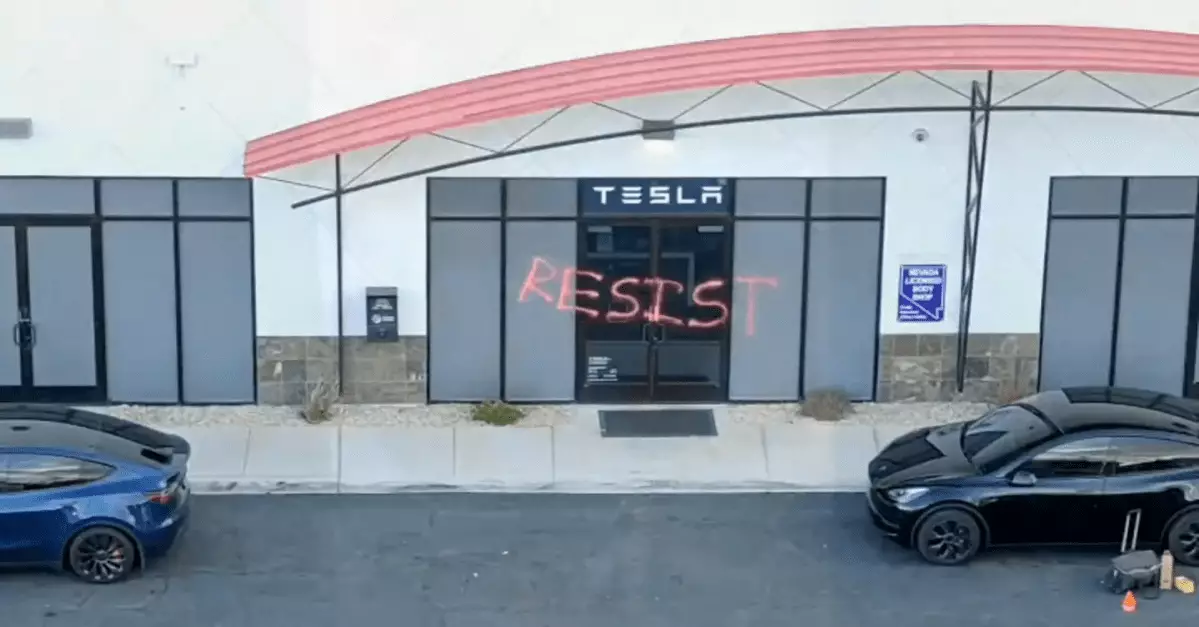In the broader narrative of technological advancement and environmental awareness, the rise of electric vehicles, particularly those produced by Tesla, has sparked not only admiration but also hostility. Recent events have highlighted a worrying trend: vandalism against Tesla vehicles has transcended mere criminal acts to potentially being classified as domestic terrorism. The Trump administration’s consideration of this categorization indicates a significant escalation in the stakes surrounding the electric vehicle (EV) discourse. Incidents of vandalism, such as Molotov cocktail attacks on Tesla vehicles in Las Vegas, showcase a troubling intersection of ideology, anger, and societal unrest against change.
Unpacking the Motivations
The motivations behind such acts of violence against Tesla are multifaceted and complex. There are no clear-cut answers as to why a person would resort to violent vandalism over a vehicle brand, yet these attacks reveal deeper societal sentiments. Many traditional automotive enthusiasts, particularly those connected to fossil fuel industries, may view the growth of electric vehicles as an existential threat. Beyond mere brand loyalty, some perceive Tesla’s success as a critique of longstanding industry practices and an attack on their way of life. As electric cars challenge the norms of automobile ownership and energy consumption, resentment brews among those resistant to change. This growing divide reflects broader cultural battles, wherein technological progress may alienate some segments of society.
From Arson to Terrorism
The FBI’s involvement, labeling these incidents as potentially domestic terrorism, lends gravity to the ongoing attacks. The implications of this categorization carry weighty consequences for the individuals involved, as well as for the broader narrative surrounding environmentalism and industry transformation. This shift challenges our understanding of what constitutes terrorism. Is the violent opposition to a revolutionary product merely misdirected anger, or is it a calculated attempt to sabotage a vision for the future? The distinction matters, as it might determine the legal and social ramifications for those who take violent action against perceived threats to their livelihoods.
The Role of Leadership in Navigating Crisis
Tesla CEO Elon Musk’s characterization of these attacks as “terrorism” reveals the dilemma facing modern leaders in a tumultuous landscape. Musk’s rhetoric serves to rally the Tesla community while highlighting the absurdity of attacking a company that espouses a mission of sustainability and innovation. However, such comments also risk polarizing the conversation further. Rather than constructive dialogue about the implications of shifting technologies, they might entrench adversarial positions. As leaders grapple with these complexities, the challenge remains: how to address dissent without further alienating those who feel left behind in the green revolution.
The events surrounding Tesla vandalism illuminate uncomfortable truths about technological change and societal readiness for such transformations. The backlash, rife with emotion and fueled by fear of economic and cultural displacement, raises fundamental questions about the future. As the debate intensifies, society finds itself at a crossroads, where understanding and empathy must prevail if we are to move forward cohesively in this age of electric innovation. The real test lies in how each of us—consumers, leaders, and advocates—responds to this challenge.

